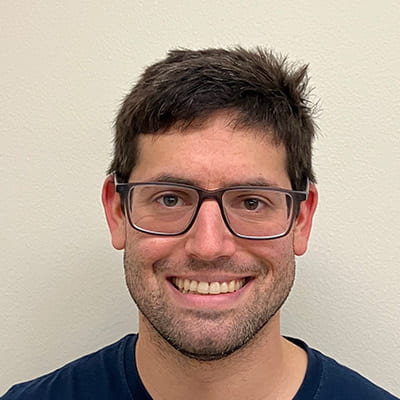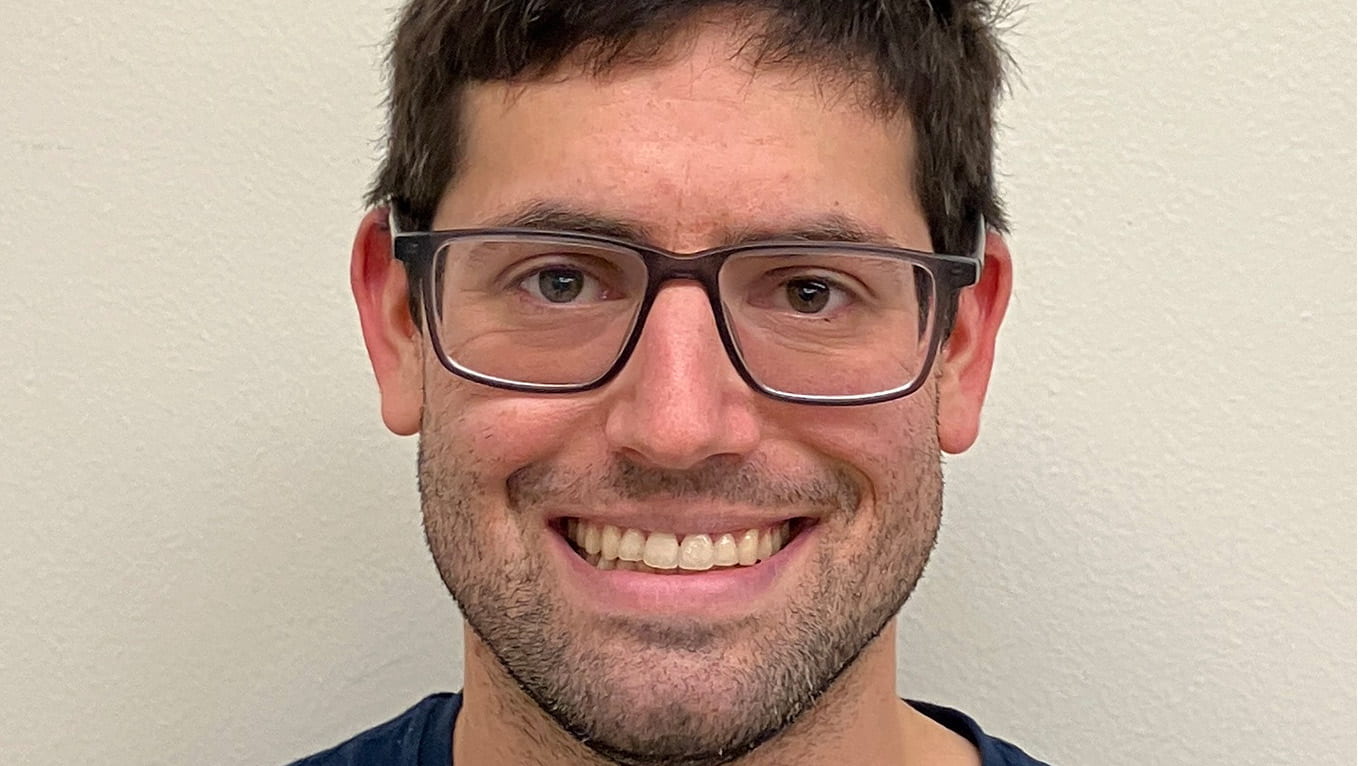Department: Applied Mathematics
Undergraduate Institution: Cornell University, Physics and Mathematics, A.B.
Graduate Institution: University of Colorado, Astrophysical and Planetary Sciences, Ph.D.

“Something my dad always says is ‘Give yourself permission to fail.’ In other words, doing an experiment, you might mess up or go down a rabbit hole, but you should cross that bridge when you come to it, so don’t be afraid to try something new out.”
Loren Matilsky joined the Baskin Engineering Applied Mathematics Department in fall 2022 as an NSF Astronomy and Astrophysics Postdoctoral Fellow. He works under the guidance of Applied Mathematics Professor Nic Brummell, conducting research on astrophysical fluid dynamics, specifically solar and stellar dynamos. During his postdoc appointment, which runs for three years, he will be establishing a peer mentorship program within the Applied Mathematics and Astrophysics Department to support grad student and postdoc networking and collaboration.
Describe your journey to Baskin Engineering.
I did my Ph.D. program in astrophysics at the University of Colorado Boulder (CU Boulder). One of the faculty here, Nic Brummell, applied mathematics professor, worked at CU Boulder for a long time. He was actually my thesis advisor’s postdoc. I met Nic at a conference in Boulder and we realized we had a lot of the same research interests. I applied to the NSF Astrophysics Fellowship where you can choose which institution you want to do your fellowship at. My application was accepted in 2021 and I started at UC Santa Cruz this past fall.
Describe the work you do as a postdoc.
The work I do is in astrophysical fluid dynamics, basically how stars generate their magnetic fields, which is called a stellar dynamo. My overall research goal is to understand the solar dynamo and other stellar dynamos, particularly those of the smallest star, the M dwarfs (or red dwarfs). Most recently I’ve been working on a paper focused on the solar tachocline; this is the transition region between the sun’s radiative interior, which is observed seismically to rotate like a solid ball and the convection zone, which rotates differently. For example, surface features near the equator complete a revolution every 25 days; those at the poles go around every 30 days. The first draft of this paper has been finished.
The NSF fellowship had a two-prong application: research proposal and broader impacts, such as mentorship and outreach initiatives. I wrote my broader impacts section on establishing a peer mentorship program within the Applied Mathematics and Astrophysics Departments. I plan on officially getting it going this fall quarter, after discussion with members of both departments. It would allow grad students and postdocs in both departments to collaborate and learn from one another.
When did you first get interested in astrophysics and fluid dynamics?
My dad is an astrophysicist at Rutgers University in New Jersey, so it’s always been an interest in my family. I majored in physics for my undergrad and did a little bit of research in astrophysics in my undergrad as well. I applied to mainly astrophysics programs for my doctorate program. It was my thesis advisor Juri Toomre who got me into fluid dynamics. Fun fact there—he has advised almost 30 Ph.D. students in astrophysics over his career, and retired early last May at the age of 82.
What are a couple highlights you would like to share from your time at Baskin Engineering thus far?
It’s really nice to have the freedom to do independent research. I published my first single author paper a few months ago on a topic I probably wouldn’t have had time to focus on in a conventional postdoc appointment. I also like the community here at Baskin Engineering and the social events that are put on to get staff and faculty together. Also just the campus’s beauty is a highlight. I love riding my bike down the bike path at the end of the day, overlooking Monterey Bay and seeing the sunset.
What is a piece of advice someone has given you that resonates still to this day?
Something my dad always says is “Give yourself permission to fail.” In other words, doing an experiment, you might mess up or go down a rabbit hole, but you should cross that bridge when you come to it, so don’t be afraid to try something new out. This advice has always been helpful in academia, especially when I’ve dealt with imposter syndrome. I’ve actually discovered that the higher and higher I get in academia, everyone seems to suffer from imposter syndrome. It’s not unique to have fear get in the way, but it’s important to not let that fear stop you from succeeding (or even failing).
Interview Date: September 14, 2023
This block group hides your featured image, remove this block group to show your featured image again.
This block group hides your featured image, remove this block group to show your featured image again.




